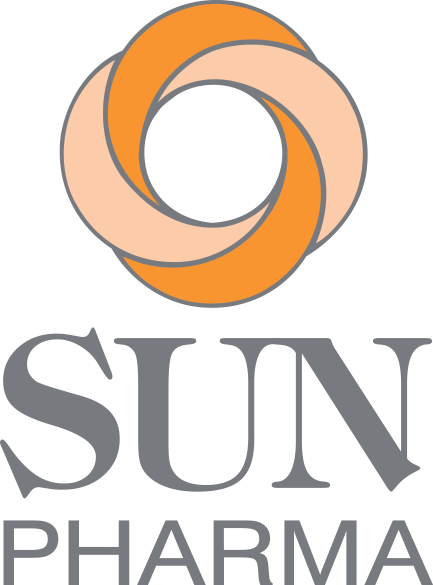The Canadian Association of Psoriasis Patients is pleased to announce the winners of the 2021 studentships in psoriatic disease. Congratulations to all of you!

Dhruv Sharma, McMaster University
Project Title: Prognosis and Biomarker Studies in Psoriasis and Psoriatic Arthritis
Primary Supervisor
Dr. Vinod Chandran
University of Toronto
Toronto Western Hospital, University Health Network
Research Institution
Toronto Psoriatic Disease Research Program, Toronto Western Hospital
Summary
Psoriasis is a relatively common inflammatory disease which affects over one million people in Canada and approximately 125 million people worldwide. In about 25% of psoriasis patients, an inflammatory arthritis known as psoriatic arthritis (PsA) develops, which is marked by a reduced quality of life and functional capacity.
Psoriatic arthritis is underdiagnosed and early diagnosis and treatment for PsA patients is essential to prevent joint damage. While current treatment methods such as anti-TNF and other biologic therapies focus on improving symptoms and preserving the joint structure, identifying patients who have active disease and hence require such therapy can be challenging. Identification of blood markers which accurately measure PsA disease activity is required to better manage disease.
This research project aims to determine whether fatty acid-related blood markers are associated with PsA activity. The study may lead to the possible discovery of blood markers that accurately measure disease activity and help better manage patients with this often-debilitating disease.

Farhan Mahmood, University of Ottawa
Title: A Clinical Trial Assessing the Efficacy of Topical Cannabis in Treating Psoriasis
Primary Supervisor
Mark G. Kirchhof, MD, PhD, FRCPC
University of Ottawa
The Ottawa Hospital
Research institution
The Ottawa Hospital
Faculty of Medicine, University of Ottawa, Ottawa, ON
Summary
Psoriasis is a common inflammatory skin condition that affects more than 125 million people worldwide. Psoriasis often results in raised, red, scaly, and itchy skin, and also increases the risk of developing other devastating health comorbidities such as psoriatic arthritis, infections, and heart disease. Although there is no cure, therapies are used to treat symptoms.
Common treatments include topical therapies such as corticosteroids, phototherapy, and systemic drugs. However, many of these options result in low patient satisfaction and adverse events, in addition to frequent treatment switching due to the heterogeneity of psoriatic lesions between patients. This results in untreated patients and impaired quality of life. Improving or expanding treatment options that are also economical could significantly improve disease management and improve quality of life and psoriasis care.
Recently, topical cannabis, an accessible and economical therapy, has been shown to effectively treat dermatological disorders including psoriasis with minimal adverse events. Cannabinoids are already approved in the United States and are already recommended to patients by an estimated 14% of American dermatologists for a variety of skin conditions. Several compelling studies have also supported the anti-pruritic, anti-inflammatory, and anti-proliferative properties of cannabinoids.
Our randomized, double-blind, placebo-controlled, phase IV clinical trial aims to determine the efficacy and safety of topical cannabis to treat patients with psoriasis. Our findings will improve dermatological care by providing further evidence to support the use of topical cannabis in treating psoriasis and improving quality of life. The results of this study will also guide the development of guidelines for proper topical cannabis use in treating psoriasis.

Nadia Kashetsky, Memorial University
Title: Evaluating the Efficacy and Safety of Narrowband Ultraviolet-B Phototherapy Cumulative Doses: A Retrospective Cohort Study at the Vancouver Skin Care Center
Primary Supervisor
Dr. Sunil Kalia
University of British Columbia
Vancouver Skin Care Centre, Psoriasis & Phototherapy Clinic
Research institution
Vancouver Skin Care Centre
Vancouver, BC
Summary
Psoriasis is a chronic immune-mediated inflammatory skin disease characterised by well-defined red plaques with silvery scales, ranging in severity from a few plaques to involvement of the whole body. Psoriasis affects more than one million Canadians and can have a detrimental impact on quality of life. As the cause of psoriasis remains unclear, treatment options focus on combating acute symptoms.
While over the past decade new treatments have diversified therapeutic options for psoriasis, phototherapy (the use of light and laser-based treatment) remains an effective and rapid acting treatment option. In fact, over 5,000 patients with psoriasis are treated with phototherapy every year in British Columbia. Advantages of phototherapy include high efficacy, avoidance of systemic side effects, drug interactions and laboratory monitoring, as well as low cost and safety for children and people that are pregnant. Narrowband Ultraviolet-B (NB-UVB) is the preferred type of phototherapy used for treatment of moderate-to-severe psoriasis due to its high safety profile and potential to achieve high clearance rates. However, its methods of delivery vary greatly in regard to cumulative dose. At this time, the lowest cumulative dose of NB-UVB phototherapy to achieve disease resolution in moderate-to-severe psoriasis has yet to be determined.
Accordingly, our study aims to determine the lowest cumulative dose of NB-UVB phototherapy required for clearing moderate-to-severe psoriasis as measured by the Psoriasis Area and Severity Index (PASI), while limiting adverse effects. The results of this study will be used to advance knowledge of psoriatic diseases by:
- directly guiding physicians toward prescribing the most effective NB-UVB phototherapy treatment regimen,
- informing clinical practice guidelines,
- optimizing health care resources, and
- ultimately improving patient quality of life.

Yuliya Lytvyn, University of Toronto
Title: Is risankizumab treatment effective and safe in patients with moderate to severe plaque psoriasis that were unsuccessfully treated with guselkumab? A retrospective study at the University of Toronto
Primary Supervisor
Dr. Jensen Yeung
University of Toronto
Sunnybrook Health Sciences Centre
Research institution
Sunnybrook Health Sciences Centre
Toronto, ON
Lay Summary
More than 125 million people worldwide are living with psoriasis, 90% of which have plaque psoriasis. The chronic auto-immune skin inflammation increases the risk of developing debilitating comorbidities such as psoriatic arthritis, infections, cancers, and cardiometabolic diseases.
Unfortunately, there is no definitive cure, but therapies are available to treat symptoms. Due to a large heterogeneity between patients, not all treatments are equally efficacious, which often results in a frustrating cycle of medication trial and error. The physical disease presentation combined with numerous physician visits lead to detrimental effects on patient’s quality of life, psychological well-being, mental health, and work productivity. Therefore, safe and effective long-term therapy options are needed to help avoid the medical and psychological comorbidities of patients living with psoriasis.
The discovery of the dominant role of IL-23A cytokines in the inflammatory process of psoriasis led to development of 2 highly effective novel biologic therapies targeting IL- 23A: guselkumab and later risankizumab. Completed phase 3 studies report that about 50% of patients with psoriasis taking guselkumab achieve total skin clearance within 1 year of treatment and 78-81% within 2 years of risankizumab treatment. Switching biologic treatment within the same class was shown to be an effective treatment with other biologics. Moreover, patients in real world practice may have a harder to manage disease compared to clinical trials, where medically challenging patients are often excluded. Therefore, the aim of this study is to measure the safety and efficacy of risankizumab in patients with psoriasis that were previously unsuccessfully treated with guselkumab in the real-world clinical practice.
The ultimate goal is to guide physicians in prescribing and monitoring responses to IL-23A inhibitors, which may help patients decrease the burden of costs for ineffective medication, increase productivity, improve quality of life and decrease the risk of developing the dreadful comorbidities.
2021 Sponsors
CAPP is so grateful for the support of our 2021 sponsors, without whom these Studentships would not be possible.










